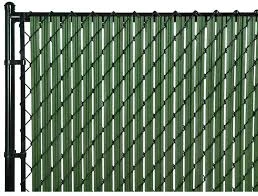Understanding Tomato Cage Wire Gauge A Guide for Gardeners
When it comes to gardening, especially in cultivating tomatoes, the right support is crucial for healthy growth and abundant yields. One of the most effective ways to support tomato plants is through the use of tomato cages. However, not all tomato cages are created equal; one important factor to consider is the wire gauge of the cage.
What is Wire Gauge?
Wire gauge refers to the thickness of the wire used in constructing the cages. The gauge is measured using a standardized American Wire Gauge (AWG) system, where a lower gauge number indicates a thicker wire. For example, a 12-gauge wire is thicker than a 16-gauge wire. This is significant because the thickness of the wire can affect the durability, strength, and overall functionality of the tomato cage.
Why Does Wire Gauge Matter?
1. Stability and Support Thicker wires (lower gauge numbers) provide more stability and support for the growing tomato plants. Tomato plants can grow quite tall and heavy, especially if they produce a lot of fruit. A cage made from 6-gauge or 8-gauge wire will hold up better against strong winds and heavy foliage compared to a cage made from 12-gauge or higher wires, which may bend or collapse under pressure.
2. Longevity Investing in a tomato cage with a thicker wire can also save money over time. While initially more expensive, cages with lower gauge wire are typically more durable and can last for several seasons. On the other hand, flimsy cages made from thinner wire may need to be replaced frequently, increasing overall gardening costs.
3. Ease of Use Thicker wire cages tend to be easier to work with when it comes to training your plants. They provide a robust structure for tying and securing branches, which can help promote healthier growth. This is especially true for indeterminate tomato varieties that can grow very tall and require more support than determinate varieties.
tomato cage wire gauge

Choosing the Right Gauge for Your Needs
When selecting tomato cages, the wire gauge you choose will depend on several factors, including the type of tomatoes you are growing and your gardening environment. For more robust varieties, such as beefsteak tomatoes, opt for cages made from 6-gauge or 8-gauge wire. These will provide the necessary strength and support as the fruit develops.
For smaller, determinate varieties, a 10-gauge or 12-gauge wire cage may suffice. These varieties are generally more compact and do not require as sturdy of a structure, making the lighter cages a valid option.
Additional Considerations
In addition to wire gauge, consider other factors such as the design and height of the cage. A taller cage might be more beneficial for indeterminate varieties, while a wider base can provide additional stability.
It's also worth mentioning that DIY gardening enthusiasts might use materials such as concrete reinforcement wire, which typically comes in thicker gauges, making it an excellent choice for homemade cages.
Conclusion
Caring for your tomato plants includes providing them with the right support. Understanding the importance of wire gauge when selecting tomato cages can lead to healthier plants and a more bountiful harvest. Whether opting for store-bought cages or venturing into DIY creations, using a thicker wire gauge is a worthwhile investment that will support your gardening efforts for many seasons to come. Happy gardening!
















